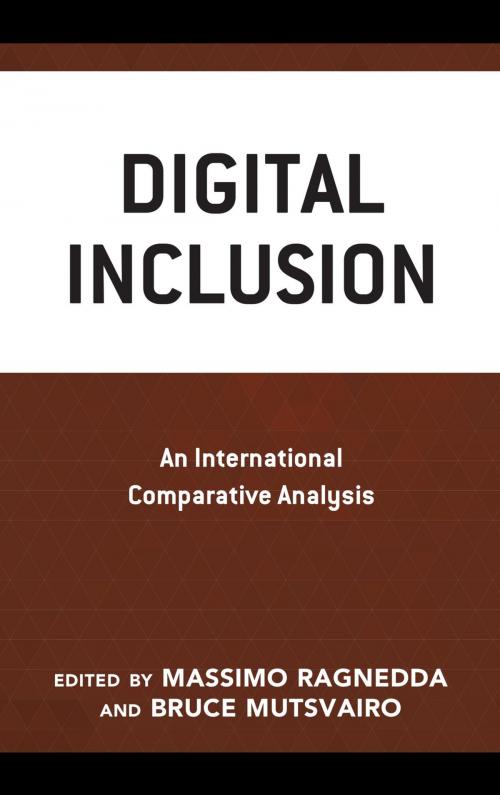Digital Inclusion
An International Comparative Analysis
Nonfiction, Reference & Language, Language Arts, Communication, Social & Cultural Studies, Social Science, Sociology| Author: | Gerard Goggin, Hamid Abdollahyan, Mahin Sheikh Ansari, Orit Ben-Harush, Anfan Chen, Lorenzo Dalvit, Christiana Hammond, Jianbin Jin, Hanna Kreitem, Kehbuma Langmia, Andrea Limberto, Sue Malta, Fanxin Meng, Bruce Mutsvairo, Massimo Ragnedda, Bianca C. Reisdorf, Colin Rhinesmith, Amit M. Schejter, Lin Shi, Noam Tirosh, Norbert Wildermuth, Raelene Wilding | ISBN: | 9781498562133 |
| Publisher: | Lexington Books | Publication: | August 15, 2018 |
| Imprint: | Lexington Books | Language: | English |
| Author: | Gerard Goggin, Hamid Abdollahyan, Mahin Sheikh Ansari, Orit Ben-Harush, Anfan Chen, Lorenzo Dalvit, Christiana Hammond, Jianbin Jin, Hanna Kreitem, Kehbuma Langmia, Andrea Limberto, Sue Malta, Fanxin Meng, Bruce Mutsvairo, Massimo Ragnedda, Bianca C. Reisdorf, Colin Rhinesmith, Amit M. Schejter, Lin Shi, Noam Tirosh, Norbert Wildermuth, Raelene Wilding |
| ISBN: | 9781498562133 |
| Publisher: | Lexington Books |
| Publication: | August 15, 2018 |
| Imprint: | Lexington Books |
| Language: | English |
The volume examines the risks and opportunities of a digital society characterized by the increasing importance of knowledge and by the incessant rise and pervasiveness of information and communication technologies (ICTs). At a global level, the pivotal role of ICTs has made it necessary to rethink ways to avoid forms of digital exclusion or digital discrimination. This edited collection comprises of chapters written by respected scholars from a variety of countries, and brings together new scholarship addressing what the process of digital inclusion means for individuals and places in the countries analyzed. Each country has its own strategy to guarantee that people can access and enjoy the benefits of the information society. While this book does not presume to map all the countries in the world, it does shed light into these strategies, underlining what each country is doing in order to reduce digital inequalities and to guarantee that socially disadvantaged people (in terms of disabilities, availability of resources, age, geographic location, lack of education, or ethnicity) are digitally included.
The volume examines the risks and opportunities of a digital society characterized by the increasing importance of knowledge and by the incessant rise and pervasiveness of information and communication technologies (ICTs). At a global level, the pivotal role of ICTs has made it necessary to rethink ways to avoid forms of digital exclusion or digital discrimination. This edited collection comprises of chapters written by respected scholars from a variety of countries, and brings together new scholarship addressing what the process of digital inclusion means for individuals and places in the countries analyzed. Each country has its own strategy to guarantee that people can access and enjoy the benefits of the information society. While this book does not presume to map all the countries in the world, it does shed light into these strategies, underlining what each country is doing in order to reduce digital inequalities and to guarantee that socially disadvantaged people (in terms of disabilities, availability of resources, age, geographic location, lack of education, or ethnicity) are digitally included.















